 Earlier this week, a coalition of over 125 publishers and non-profit scientific societies joined the Association of American Publishers (AAP) in a letter to the White House expressing serious concerns with a proposed Administration policy that would override intellectual property rights and threaten the advancement of scientific scholarship and innovation. Read more
Earlier this week, a coalition of over 125 publishers and non-profit scientific societies joined the Association of American Publishers (AAP) in a letter to the White House expressing serious concerns with a proposed Administration policy that would override intellectual property rights and threaten the advancement of scientific scholarship and innovation. Read more
Author: Kevin Madigan
Audible’s Planned Caption Service is Not Fair Use
 Late last month, a group of publishers filed a complaint against Audible in the Southern District of New York asking the court to enjoin the audiobook distributor’s launch of a new audio-to-text transcription service. Although Audible has yet to file a response, a statement from the company—a subsidiary of Amazon since 2008—hints at a fair use defense based on the service’s supposed educational purpose. Read more
Late last month, a group of publishers filed a complaint against Audible in the Southern District of New York asking the court to enjoin the audiobook distributor’s launch of a new audio-to-text transcription service. Although Audible has yet to file a response, a statement from the company—a subsidiary of Amazon since 2008—hints at a fair use defense based on the service’s supposed educational purpose. Read more
Supreme Court Holding on Recoverable Costs Misses the Mark
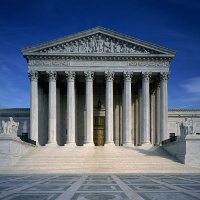 On Monday, the Supreme Court issued a decision holding that the “full costs” available to a prevailing party in a copyright dispute are limited to those litigation expenses specified as taxable under federal law. The opinion by Justice Kavanaugh reverses a Ninth Circuit interpretation of 17 USC § 505, which held that any costs incurred in the enforcement (or defense) of a copyright claim are recoverable, including expert witness and jury consultation fees. Read more
On Monday, the Supreme Court issued a decision holding that the “full costs” available to a prevailing party in a copyright dispute are limited to those litigation expenses specified as taxable under federal law. The opinion by Justice Kavanaugh reverses a Ninth Circuit interpretation of 17 USC § 505, which held that any costs incurred in the enforcement (or defense) of a copyright claim are recoverable, including expert witness and jury consultation fees. Read more
Flawed Marginal Cost Theory Should Not Be Applied to Intellectual Property
 Recent calls for the government to lower prescription drug prices by overriding patent rights include proposals for the establishment of a marginal cost pricing system in the pharmaceutical industry (and in patent-based markets in general). As a previous article in this series details, some academics and advocates are now suggesting that the government use a federal law (known as § 1498) to force companies to sell patented drugs at the amount it costs to produce one unit of the drug—also known as the marginal cost. Read more
Recent calls for the government to lower prescription drug prices by overriding patent rights include proposals for the establishment of a marginal cost pricing system in the pharmaceutical industry (and in patent-based markets in general). As a previous article in this series details, some academics and advocates are now suggesting that the government use a federal law (known as § 1498) to force companies to sell patented drugs at the amount it costs to produce one unit of the drug—also known as the marginal cost. Read more
Will the EU Finally Hold Internet Giants Accountable?
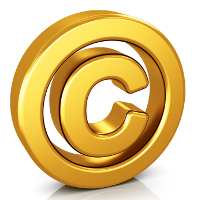 On July 5th, the European Parliament will vote on a draft of the Copyright Directive for the Digital Single Market that has major implications for the future of copyright law in the European Union and beyond. At the center of the debate is Article 13, a provision that would require online platforms that feature user-generated content to screen uploads for infringing material. Read more
On July 5th, the European Parliament will vote on a draft of the Copyright Directive for the Digital Single Market that has major implications for the future of copyright law in the European Union and beyond. At the center of the debate is Article 13, a provision that would require online platforms that feature user-generated content to screen uploads for infringing material. Read more
CASE Act Set to Empower Creators and Impose Accountability
Cross-posted from the Mister Copyright blog.
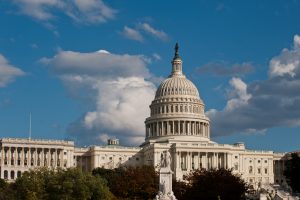 Next week, the Copyright Alternative in Small Claims Enforcement (CASE) Act is scheduled for markup before the House Judiciary Committee, promising long-overdue support for small creators and copyright owners in their fight against overwhelming infringement in the digital age. Read more
Next week, the Copyright Alternative in Small Claims Enforcement (CASE) Act is scheduled for markup before the House Judiciary Committee, promising long-overdue support for small creators and copyright owners in their fight against overwhelming infringement in the digital age. Read more
TickBox Injunction Targets Blatant Inducement of Infringement
Cross-posted from the Mister Copyright blog.
 Late last month, a preliminary injunction was issued in favor of Netflix, Amazon, and six major studios in their case against the manufacturers of the set-top streaming device TickBox TV. The order comes as use of piracy-enabling streaming devices is on the rise, and it represents an initial victory in the fight against stream-based infringement. Read more
Late last month, a preliminary injunction was issued in favor of Netflix, Amazon, and six major studios in their case against the manufacturers of the set-top streaming device TickBox TV. The order comes as use of piracy-enabling streaming devices is on the rise, and it represents an initial victory in the fight against stream-based infringement. Read more
Concerns over ALI Copyright Restatement Leave Project in Limbo
Cross-posted from the Mister Copyright blog.
 Over the past few weeks, widespread criticism has emerged over a superfluous and seemingly partisan effort to override existing copyright law. The target of concern is the American Law Institute’s (ALI) Restatement of the Law, Copyright project which—despite its stated mission to clarify copyright law—has been revealed as an influenced venture that could futher muddle already complex areas of IP law. Read more
Over the past few weeks, widespread criticism has emerged over a superfluous and seemingly partisan effort to override existing copyright law. The target of concern is the American Law Institute’s (ALI) Restatement of the Law, Copyright project which—despite its stated mission to clarify copyright law—has been revealed as an influenced venture that could futher muddle already complex areas of IP law. Read more
A New NAFTA Must Protect the Rights of Copyright Owners and Creators
Cross-posted from the Mister Copyright blog.
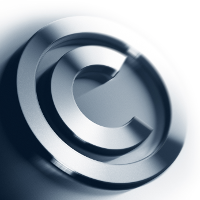 Last week, the fifth round of the North American Free Trade Agreement (NAFTA) negotiations closed in Mexico City with tensions high and little progress made towards a modernized trade deal. While the most recent talks saw the U.S., Read more
Last week, the fifth round of the North American Free Trade Agreement (NAFTA) negotiations closed in Mexico City with tensions high and little progress made towards a modernized trade deal. While the most recent talks saw the U.S., Read more
Debunking Criticism of the Copyright Small Claims Act
Cross-posted from the Mister Copyright blog.
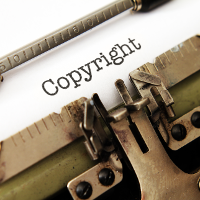 It’s been six weeks since the Copyright Alternative in Small Claims Enforcement (CASE) Act (H.R.3945) was introduced to Congress by a bipartisan coalition of Representatives, and while there’s an abundance of support among politicians, creators, artists’ rights organizations, and the Copyright Office, some have been critical of the legislation. Read more
It’s been six weeks since the Copyright Alternative in Small Claims Enforcement (CASE) Act (H.R.3945) was introduced to Congress by a bipartisan coalition of Representatives, and while there’s an abundance of support among politicians, creators, artists’ rights organizations, and the Copyright Office, some have been critical of the legislation. Read more

